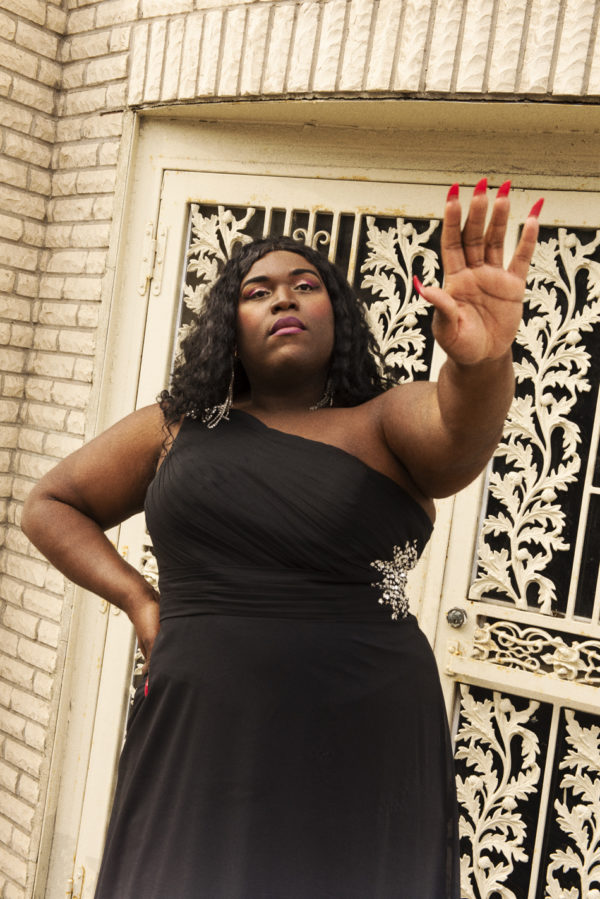
PHOTOGRAPHY BY RYAN McGINLEY
QWEEN JEAN
She's is a true force of nature. She’s an activist and, in her own words, a “fearless woman” working tirelessly to advocate for trans liberation. She tells us about her mission, her inspirations and the kind of world she’s trying to create.
I love to start every conversation with a bit of joy and positivity. So what is bringing you joy right now, Qween? At this very moment, well, in terms of today on the 14th of June, what’s really bringing me joy is the love that I felt yesterday. It was the second annual Brooklyn Liberation March at the Brooklyn Museum, organized by Black queer and Black trans, intersectional community members, and activists who wanted to create a safe space for community and particularly the transgender community, the transgender youth. People came from all parts of New York City, also from Jersey, from Upstate, from Philly, from D.C. They really came out for liberation.
When you look in the mirror, who is Qween Jean to you? Queen Jean is a bad girl. She is a fearless woman. She’s curvy, she’s beautiful. She’s dark, she’s rich, and she loves to smile. That’s who I see.
How did growing up Black and trans in Florida inform and influence your activism and the community that you cultivate today? Growing up Black and trans in Florida, honestly, I felt alone. I felt a lot of doubt. I questioned everything about myself. I questioned so much that I considered and contemplated, you know, “would it be better if I wasn’t here? If I wasn’t alive? If I wasn’t a burden to the people who said that they loved me?” And to be honest, I think as soon as I moved away, I actually made a promise to myself that I could never go back to that headspace. I should never question myself. I know that I was made and created in His image and His likeness, and therefore I have nothing to fear. God doesn’t give me the spirit of fear and I will not allow it to take over any part of me. I’ve always wanted to belong and I didn’t, that was very clear. [Laughs]
As an adult now, I don’t want anyone to ever feel that way. I want to create and organize spaces where people feel extremely empowered and they feel validated in whichever way that manifests for them. I want them to know and believe that they’re beautiful. That is what I have taken away from my childhood. And that is how I want to live the next part of my life — uninterrupted, unbothered, unbowed. I want for everyone to be able to really walk into any and every room like they own it. And for them to have the conviction and the voice to speak as they please and to share their truth — that is what makes us free. Whoever is within my life, whoever is in my family, my tribe, I don’t ever want to have to fear or question anything.
We actually share a common thread of attending a majority white theater school. For me, the experience was very difficult, but helped me hone my voice and activism as a Black trans artist fighting against this institution. So I wonder if your experience was similar? Oh, absolutely. It was challenging for lack of a better word, but it motivated me. I knew that I, myself or people like myself, were not really included. And that’s something that I think is problematic and so painful, that we’re essentially a visitor for theater making. I mean, this is the most intersectional, welcoming, open, field, but unfortunately there is still white supremacy that has found its way into the cracks and into the nooks. So I had to really shift my mindset and shift my purpose into just getting by, you know, which is definitely painful. But I knew that if I did not at least get out of it, I couldn’t then take it down.
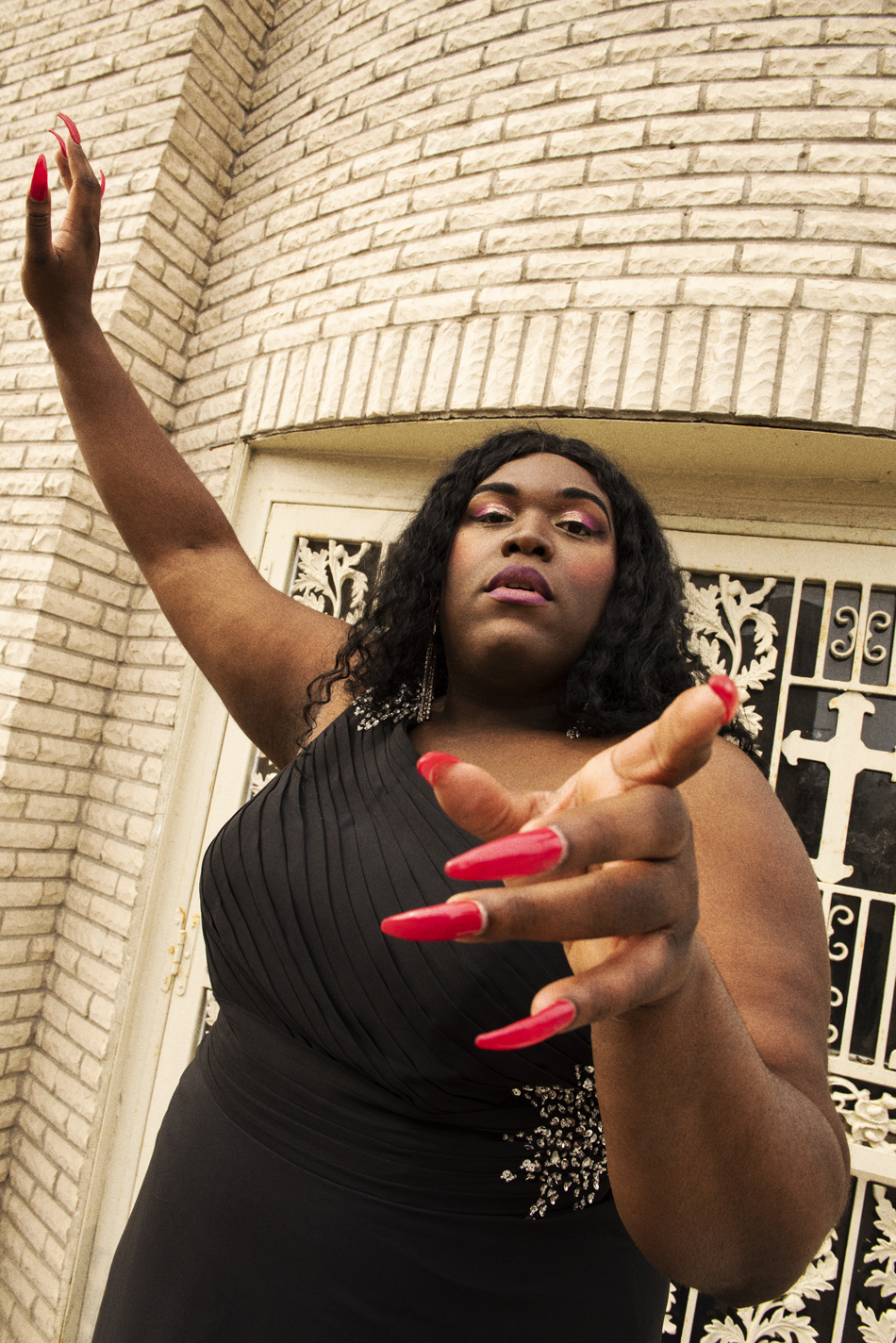
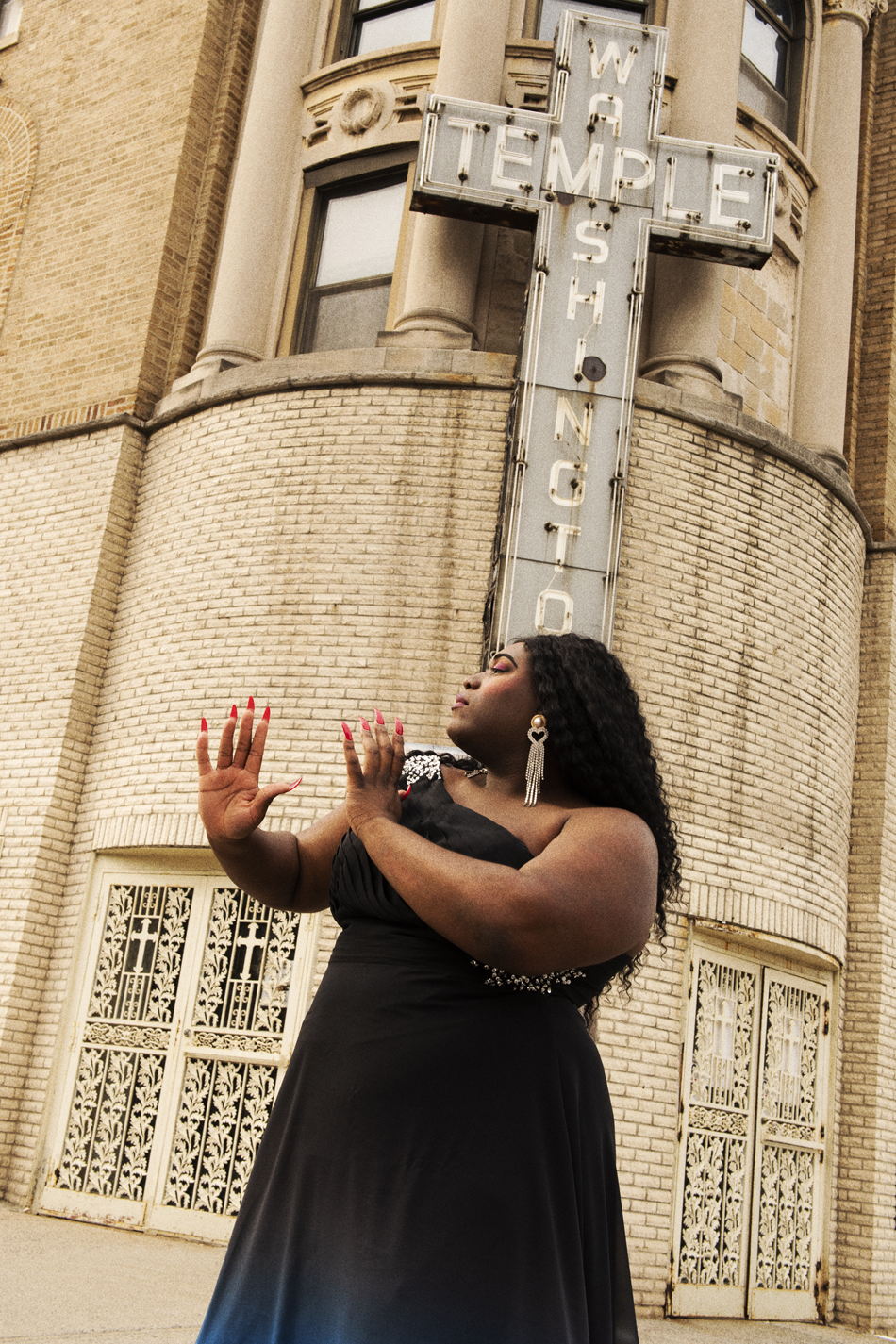
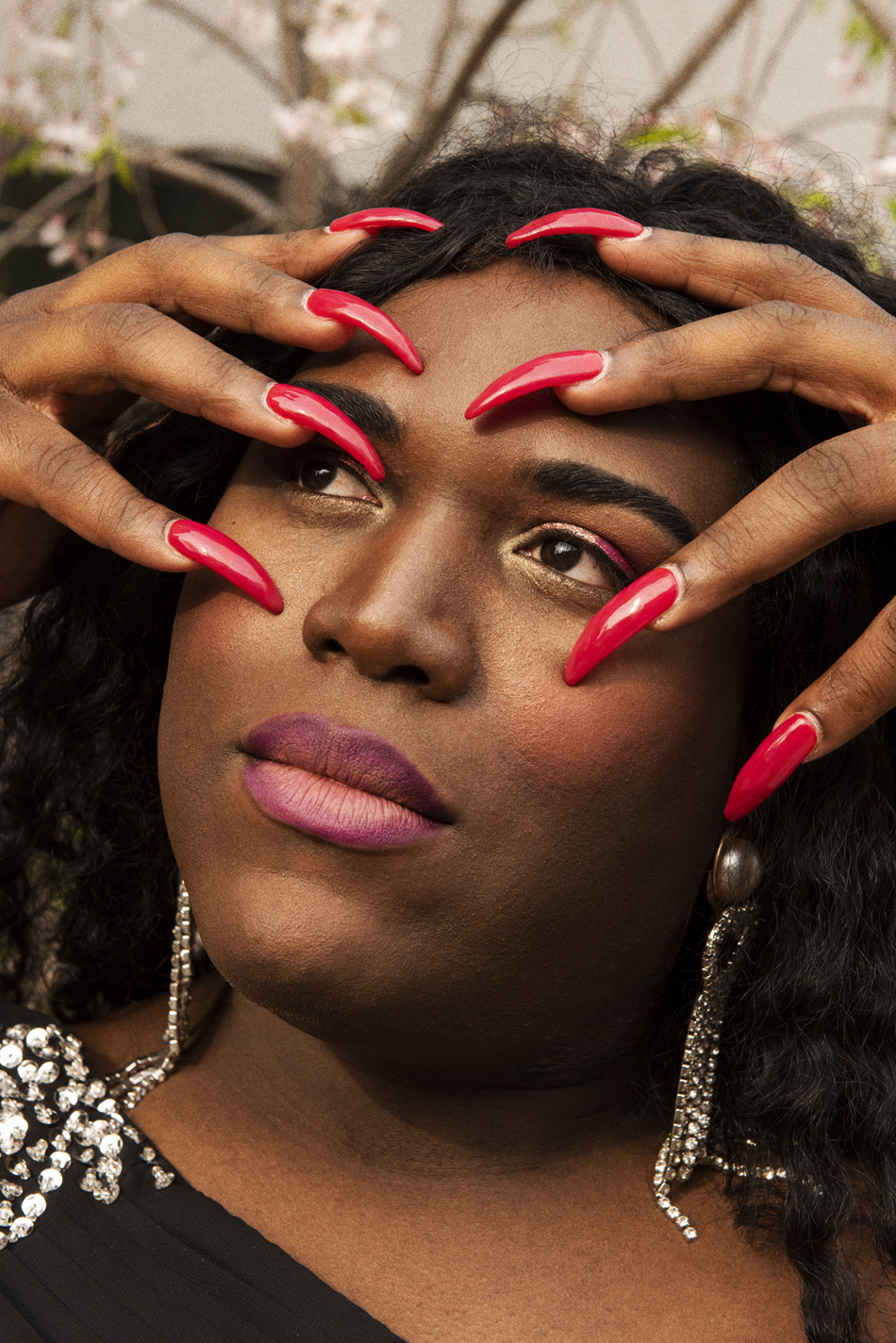
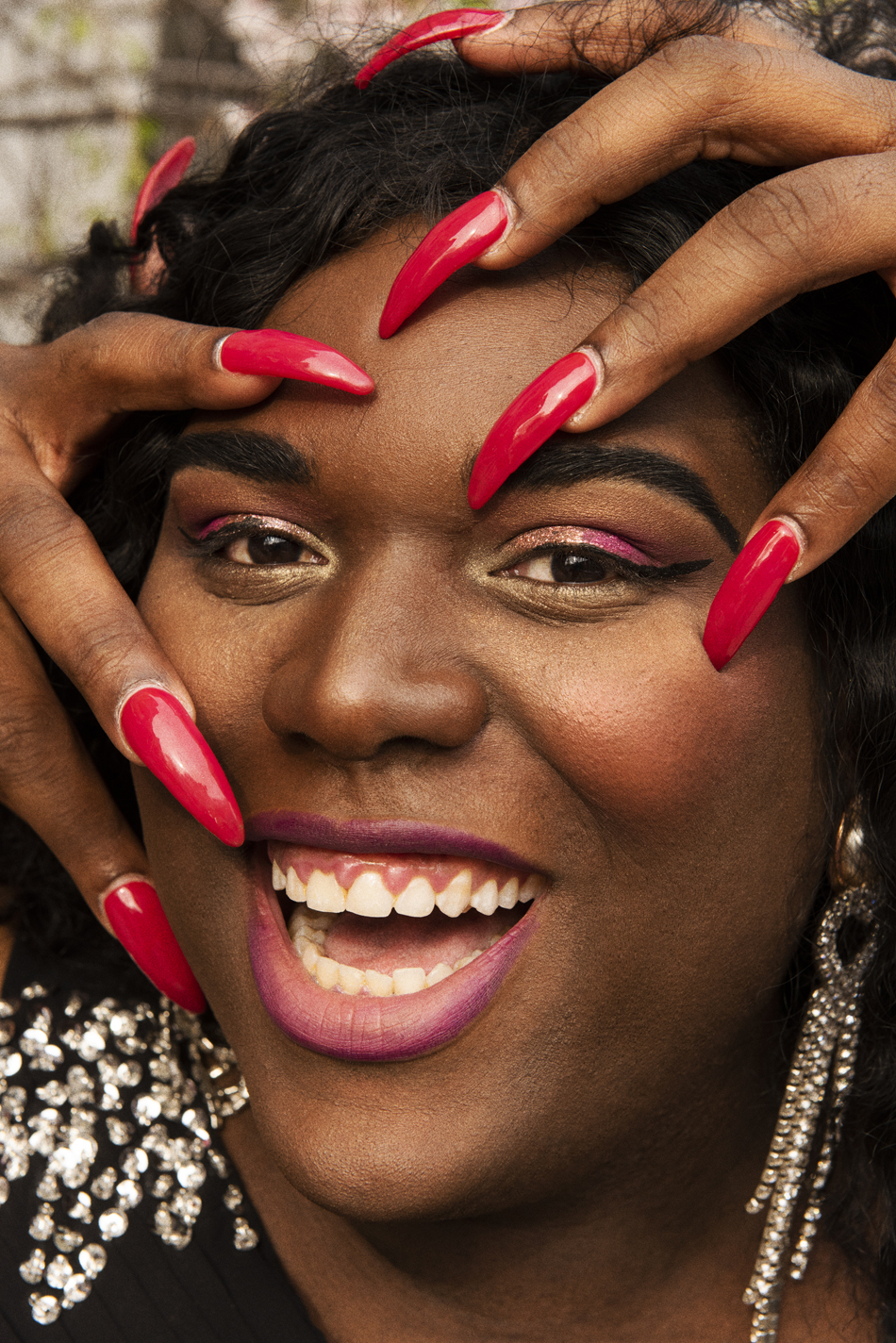
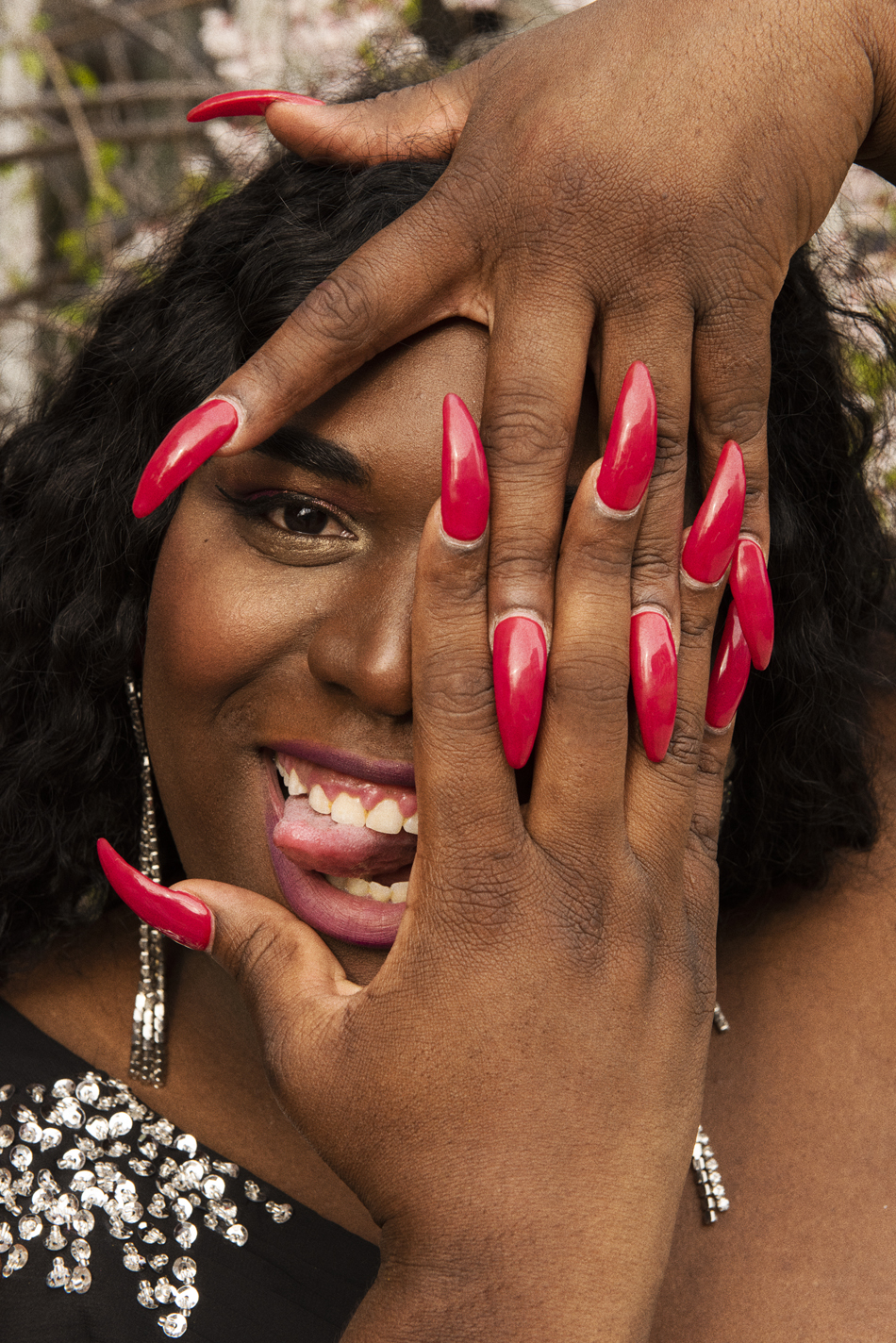
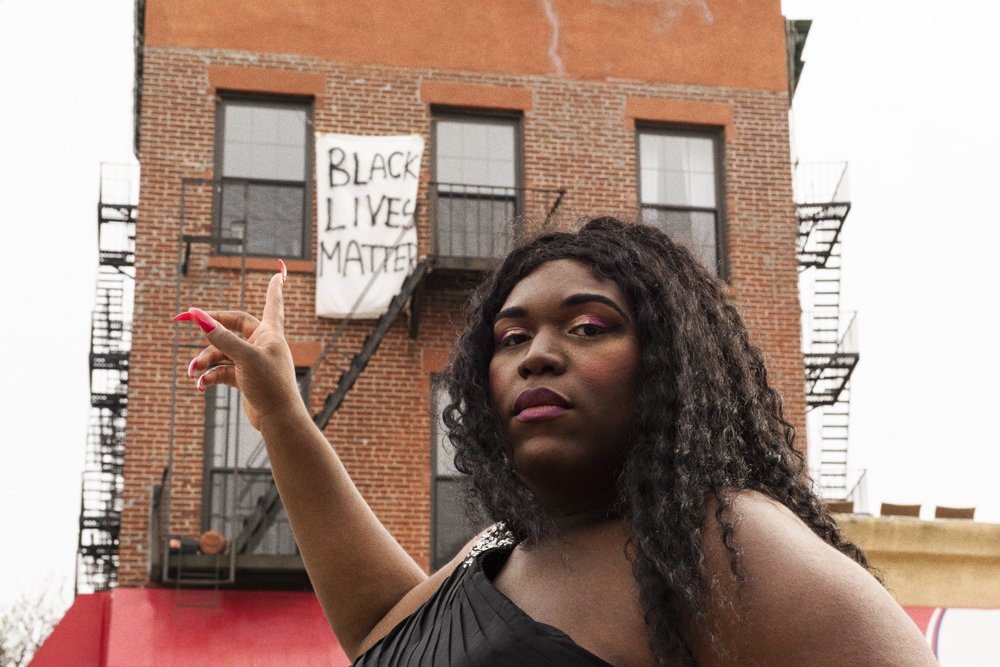
Did your experience at college at all help inform the activism that you take part in now? Absolutely. Yes, yes, yes, yes, yes. I was fully affirmed in my voice. I think for a lot of folks that are Black queer trans plus, you know, all of the magical things, we are never given true space to really stretch and creatively create. We’re not given the full respect and the license to do as we please, as a lot of our other counterparts are. So when you have an idea, when you have an impulse, it’s challenged, it’s actually stripped, it’s criticized. You are breaking me down in order to do what? To build me up in your likeness, to build me up with your vocabulary or vernacular so that I too could recite the sonnets. They knew nothing about where I came from. And so I had to make that commitment to finding my own tribe, to finding my own tongue. There was my power. They didn’t really love me because they had to break me down.
What does Black trans liberation look like to you? Black trans liberation looks like me. It looks like you, Junior. It looks like us. It looks like people living unapologetically in their truth, shining as bright as they can. Taking up as much space as there is to find. In terms of our own liberation, because of scarcity, because of white supremacy, we’re fearful of sharing. We are fearful of the true intersectionality that needs to happen so we can sustain liberation. It’s that simple. And so for me, Black trans liberation looks like an ever growing, ever evolving space of revolution. The moment that we stop, it stops. The moment that we stop loving, it all will fall apart. So we continue living, we continue growing, and we continue to share.
How did you first get involved with organizing during the pandemic and was it your first time protesting in New York City? In terms of organizing and protesting, I’ve always been there. This is in my blood as a revolutionary Haitian woman. I protested and marched for Black Lives Matter and I went to the Women’s March in D.C., but it really wasn’t until this past year that there was the real birth of this awakening. Since then I haven’t stopped and I won’t. I was truly, truly, truly called. And I feel like I’m deeply seated in my purpose. I’m proud to finally be able to say that I feel hopeful. I feel like I’m really approaching and really getting to a place that feels whole, that just feels nice.
You have such a fire and passion for your community and you have been out on the streets protesting and organizing every week. How do you maintain that energy and passion? There’s no magical potion. [Laughs] What activates me is the community, not my process. They have shown me a love like no other and the kind of family I dreamed about… It feels amazing.
Is there anything you’d like to say to anyone reading who would like to support the Black trans community? Hire Black trans people. Pay Black trans people, amplify Black trans people, love them like you would love your boyfriend or your family, love us just as much, or love us even harder. It’s that simple. It’s not theoretical, it’s practical. It’s really putting it into daily practice. And I’ve really seen that transformation happen with our Stonewall community. It’s profound. It’s extremely humbling. It can happen. I just wish that young transgender people all over the world could be a part of it. That they could see and know that we’re here, that there’s truly all sorts of light and gold and sequined dresses and suits at the end of their rainbows.
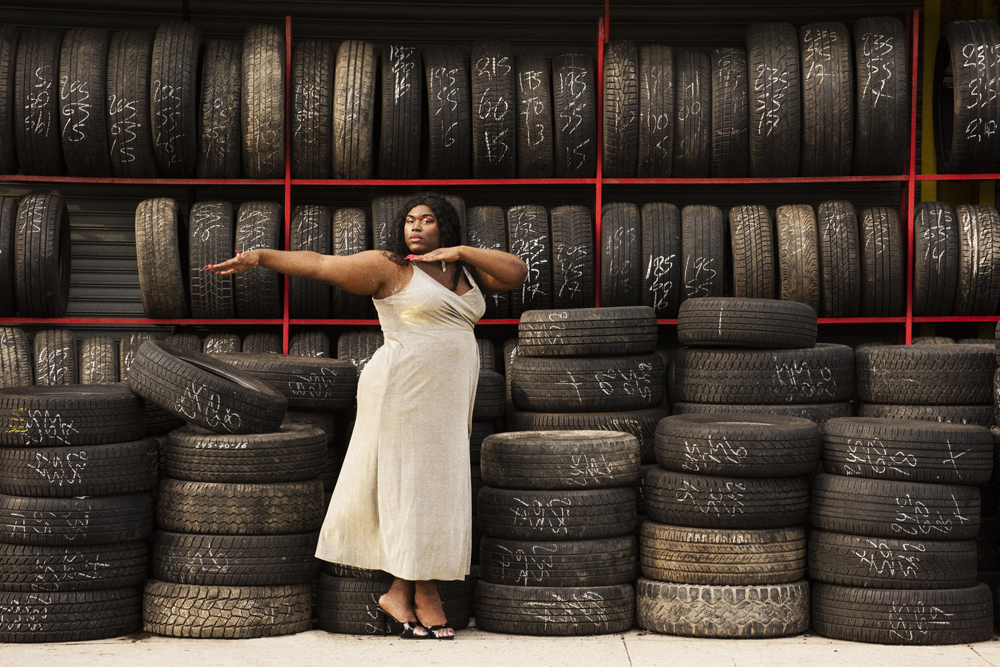
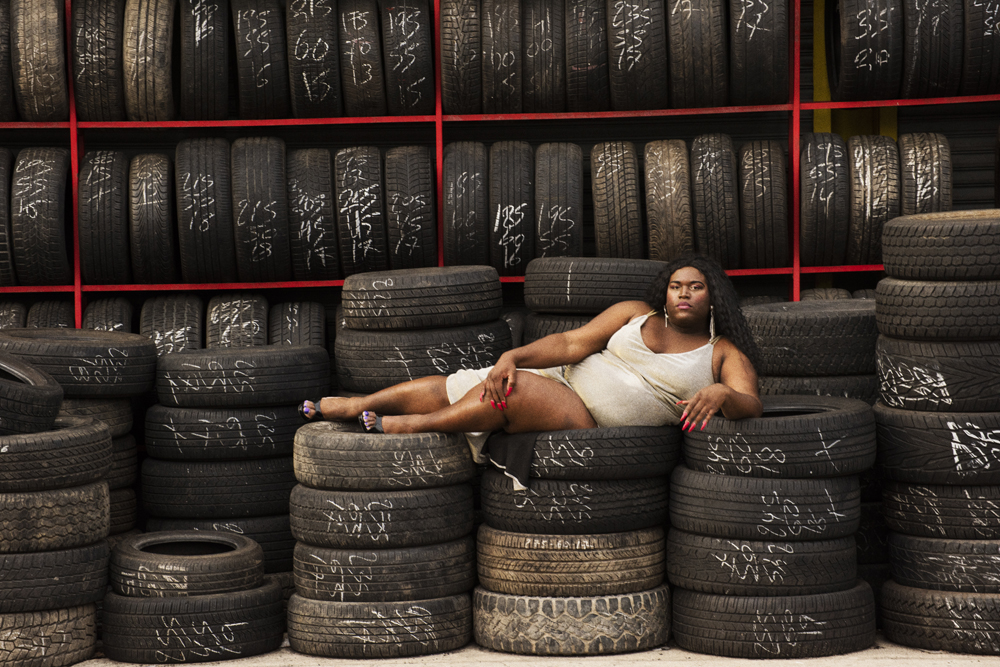
Do you have any experience or memories from the protests and all of your organizing that holds a special value to you? There are so many memories, honestly. We joke often within our group that if you miss a day around here, you miss a whole lot. And that is the God’s honest truth. Every day is a revolution. The way that we’ve come together, it feels divine. We have found each other, we found our soulmates and there are so many magical moments, but a couple in particular. I think one of the initial moments was being at the West Side Highway and we were marching and holding space. And there were 15 to 20 of us, and I was like we’re going to hold space and have conversation and engage in dialogue.
And we started talking about everything that was happening with the case with Tony McDade, what happened with Nina Pop, what was happening literally in the communities of transgender folks in terms of violence that we’re facing. We were really breaking things down and the people were going off and it was so beautiful. It was beautiful to see people coming out of their cars and coming and sitting down and listening and they were like, ‘whoa, bitch keep going.’ And I was like, okay, I got it. That moment was truly memorable. And there were some people that were angry as well as they were listening. But you know, I gave them the mic and said “What are you angry for?” And they were literally screaming that “We are in pain,” and that “We were being killed.” And angry that people are angry at us, for fighting for freedom. How privileged it is to say that you are being inconvenienced in this moment when you do not even know, I believe there were at that point, 24 transgender people killed. We kept going.
Another memorable moment, Marsha Monday. It was Marsha P. Johnson’s 75th birthday, on August 24th. All summer I was like, what are we going to do for Marsha’s birthday? And I said, I want to throw Marsha a birthday party. And we got to putting it together.
It was incredible, the months leading up to it were so special and so many beautiful moments, but every part of the process, every step of the way I was growing and strengthening and learning. We were working as a community, we were painting, making flyers and signs. Folks were cooking leading up to it. Building relationships with the community partners. And that day was so hot and amazing. It was fierce! And it just felt like she was in this space with us. We sang, we danced and we took to the streets to the pier. I mean, there was a rhythmic ancestral, magical thing that happened. I can’t even explain it. It was so powerful. So that was truly a crazy and magical moment.
Do you want to talk a bit about Tahtianna and her importance to you? Tahtianna Fermin is my sister, a revolutionary, and a creator. She’s not your average organizer. And she is truly here to shake things up. She is a phenomenal, fierce trans Afro-Latina woman from the Bronx and my soul sister. We come from the same island that shares Haiti and the Dominican Republic, and it is not by accident that we’ve both found each other. I believe in her, I believe in her dreams, I believe in her power. I believe that she’s going to change the world for so many young people. She is a healer, a nurturer, and she has a way of making me laugh. When you feel like you are at the end of the day and when you are most taxed, most exhausted, she makes you feel empowered and beautiful. That is a gift. She is a gift.
Can you talk about Bridges4Life, her organization? She founded the Bridges4Life organization, and truly, her mission is about bridging the gaps and creating opportunities, not just opportunities, but ways for community, in particular trans and queer youth, to have bridges so that they can really cross over into their future. So they could skip over and have the access that they’ve been denied. She has a dream of creating a space, building a home, a refuge and y’all should be working to make her dream come true. Please donate and amplify because this is someone who is an angel. She’s a humanitarian. And she does the work each and every day. She fights for the women who are overlooked or ignored in particular our Black trans sex workers.
Do you have any plans or goals you hope to accomplish in 2021? And is there anything that you’d like to tell a Black trans person reading this? My goals are already coming in. My life is already happening. Those dreams are being achieved. I am so grateful for them. I’m grateful for the community who’s helping me to carry out those dreams and visions. There’s so much more coming out. What I would say to a young queer trans person is for them to believe in their voice and believe that they are loved. And most importantly to believe that they have everything in their possession to be the best they can be. I said yesterday at the Brooklyn Liberation March that my freedom is not something that a white person will grant me. It is not something that this system will provide for me. It is not something that a program can offer me. Your freedom is within your being. It is within you and you’ve got to activate it, you have got to wake up and make it happen and know that it will not be something that has to happen alone. You will find your tribe. You will find the people who truly, sincerely, and wholeheartedly will fight to make your fight their fight.
What organizations and community leaders would you recommend readers to follow, support, and amplify? Oh my gosh. So many. BTFA: Black Trans Femmes in the Arts, For The Gworls, the G.L.I.T.S. organization, the Sylvia Rivera Law Project, The Okra Project, and Black Trans Travel Fund, and of course, Bridges4Life in New Jersey.
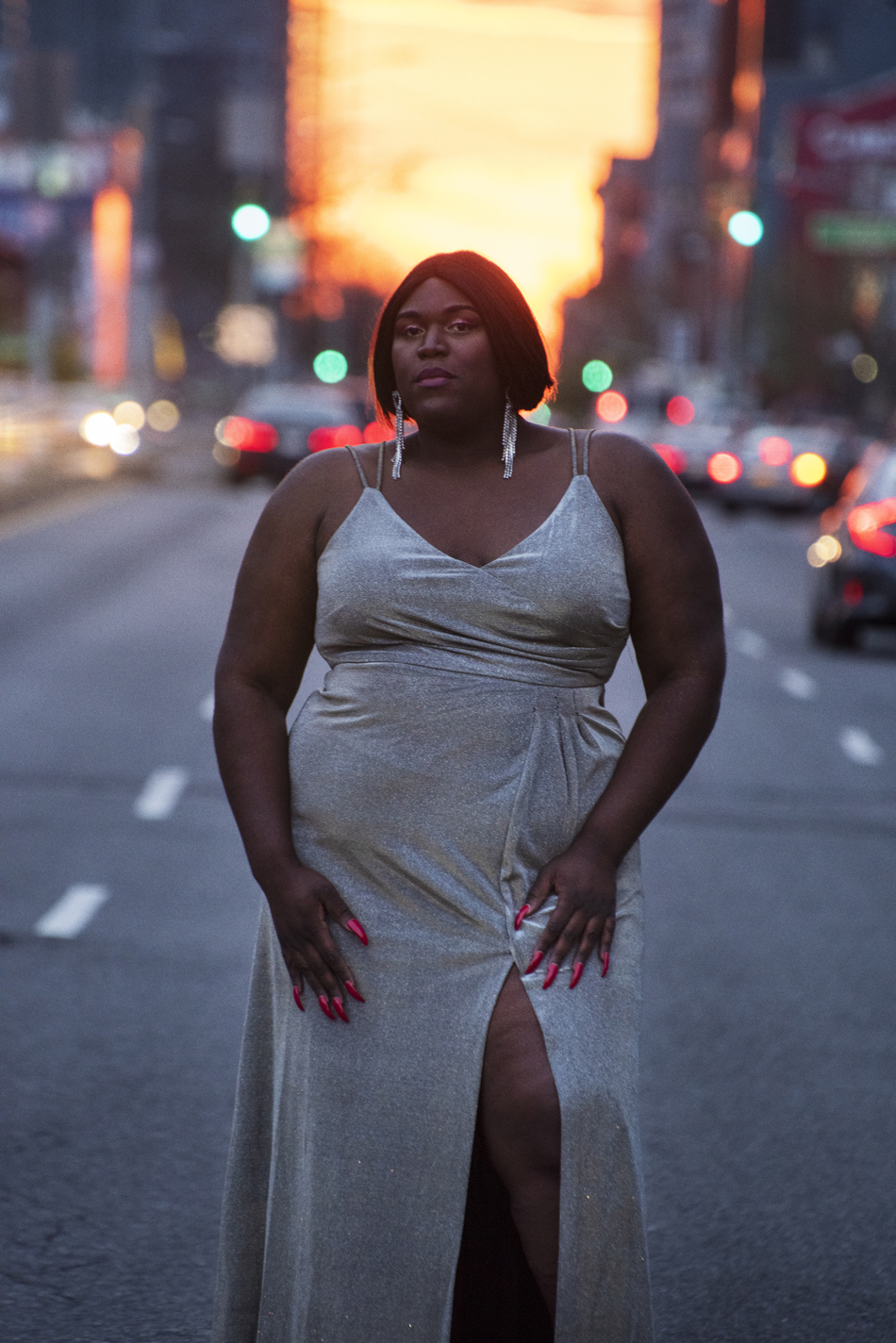
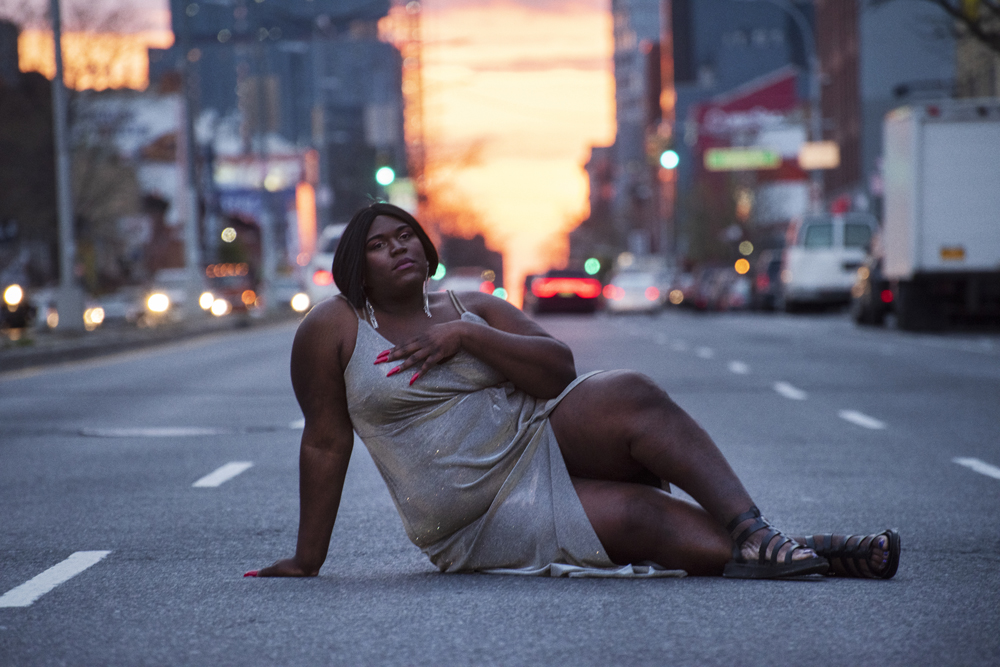
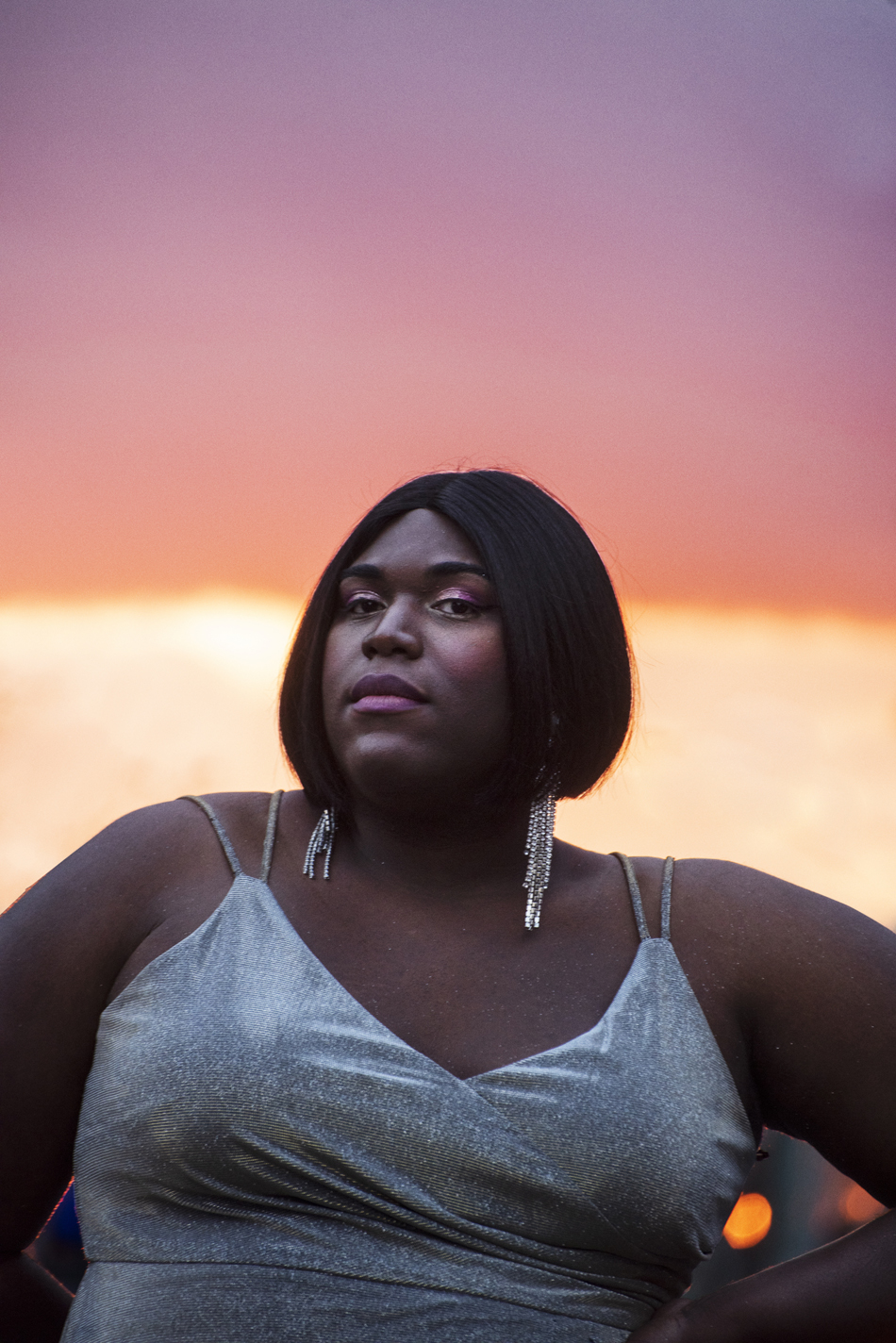 Qween Jean photographed by Ryan McGinley in Brooklyn, New York. June, 2021.
Qween Jean photographed by Ryan McGinley in Brooklyn, New York. June, 2021.
This story was printed in GAYLETTER Issue 14, get a copy here.